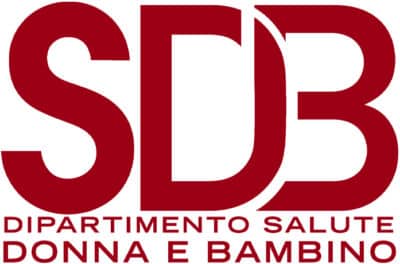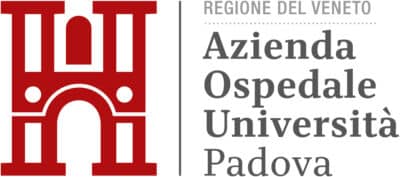

Our Second-level short specialisation degree in Medically assisted procreation techniques and human reproductive sciences provides the fundamental skills necessary to work with embryology and genetics in clinics and laboratories during medically assisted procreation practices, particularly focusing on the diagnosis and treatment of male and female infertility, ovarian stimulation protocols, psychological counseling for infertile couples, selection of gametes in heterologous MAP.
The course covers themes ranging from fertility counseling to the protection of reproductive health, the processes of diagnosis and treatment of infertility, fertility preservation, social freezing, psychological support for infertile couples and cancer patients, heterologous MAP, preimplantation genetic diagnosis, ovarian tissue removal and uterus transplant.
The skills acquired during the course will allow students to consolidate the fundamental knowledge required to continue their training at MAP Units and/or embryology labs (as is required by the current legislation).
The contents of the Second-level short specialisation degree in Medically assisted procreation techniques and human reproductive sciences include: diagnosis of male and female infertility, management of the therapies undergone during the course of fertility treatments, surgical treatments for infertility, ovarian stimulation protocols, preparation and analysis of semen, in vitro fertilization techniques, gamete and embryo freezing techniques, psychological counseling for infertile couples, selection of gametes and genetic matching for heterologous MAP.
The Second-level short specialisation degree in Medically assisted procreation techniques and human reproductive sciences is addressed to doctors, biologists, and embryologists with a basic background knowledge of anatomy and physiology.
Students will acquire the core competencies regarding the clinical processes of the diagnosis and treatment in medically assisted procreation (1st, 2nd, and 3rd level), more specifically the diagnostic process for couple infertility, ovarian stimulation aimed at MAP treatments, analysis and preparation of semen aimed at MAP treatment, evaluation after oocyte pick-up, intrauterine insemination, and embryo evaluation (grading and staging).
Students will learn about the most recent methods concerning oocyte pick-up, in vitro fertilization and intracytoplasmatic sperm injection, embryo transfer, oocyte cryopreservation, embryos and tissues.
The course will also cover the fundamentals of semenology, manipulation and cryopreservation of gametes, fertility preservation, and the most recent laboratory methods concerning MAP.
These skills will allow students to gain the necessary expertise to continue their training at MAP Units and/or embryology labs.
The contents of the Second-level short specialisation degree in Medically assisted procreation techniques and human reproductive sciences will cover the following subjects:
1st, 2nd, and 3rd LEVEL MAP TECHNIQUES
Controlled ovarian stimulation. Intrauterine insemination: indications, preparation of the patient, execution.
Artificial insemination: indications, preparation of the patient, execution.
Oocyte cryopreservation and social freezing.
Heterologous insemination.
Embryo transfer techniques
ENDOMETRIOSIS, TUBAL PATHOLOGIES, AND INFERTILITY
Infertility and pelvic endometriosis.
Reproductive outcome after surgery; MAP and surgery.
Infertility and tubal pathologies.
ULTRASOUND AND MAP
The importance of ultrasounds in diagnosing infertility-related pathologies and of follicular monitoring.
MYOMAS AND INFERTILITY
The role of myometrial pathologies in infertility and reproductive outcome after surgery.
HYSTEROSCOPY AND MAP
The role of hysteroscopy in the process of diagnosis and treatment of infertility in couples.
LEGAL MEDICINE
Legal medicine in MAP procedures.
DIAGNOSIS AND TREATMENT OF MALE INFERTILITY
First and second level diagnosis of male infertility.
Medical treatment of male infertility.
SONOHYSTEROSALPINGOGRAPHY
Use of SHG in diagnosing uterine and tubal pathologies.
THYROID DISORDERS AND INFERTILITY
Thyroid disorders and their association with the reproductive system and the first stages of implantation.
PCOS AND INFERTILITY
PCOS pathogenesis, diagnosis, and medical treatment.
OVARIAN HYPERSTIMULATION SYNDROME
OHSS pathogenesis, diagnosis, treatment, and prevention.
FERTILITY PRESERVATION
Indications, goals, female fertility preservation techniques.
OOCYTE PICK-UP AND EMBRYO TRANSFER
Oocyte pick-up and embryo transfer techniques.
FERTILITY PRESERVATION FROM AN ONCOLOGICAL POINT OF VIEW
Effects of neoplasia on fertility: oncological counseling and selection of the patient candidate for fertility preservation.
OVERALL MAP PROCESS
Quality indicators in the laboratory course of a MAP center.
New parameters for assessing embryo quality.
COUNSELING AND PSYCHOLOGICAL SERVICES FOR INFERTILE COUPLES
Counseling methods and psychological support for infertile couples.
Assessing the resources of the individual and the couple.
Psychological support during fertility treatments.
AGE AND FERTILITY
Ovarian reserve and fertility – parameters that influence the ovarian reserve.
LEGISLATIONS CONCERNING MEDICALLY ASSISTED PROCREATION
The knowledge of laws and institutions is the foundation of the competences of healthcare workers who operate in centers dedicated to medically assisted procreation.
Over the course of the Second-level short specialisation degree, students will have the chance to observe and interact with nationally and internationally renowned experts. During their internship, they will be able to actively take part in the MAP Center’s clinical activities (e.g., counseling for infertility and oncofertility, or performing diagnostic tests such as ultrasound evaluations of the ovarian reserve, follicular tracking, sonohysterosalpingographies, diagnostic hysteroscopies, and level I, II and III medically assisted procreation treatments), and lab activities (e.g., semen analysis and preparation for MAP treatments, evaluation after oocyte pick-up, and IVF embryo transfer and ICSI techniques).
The general ranking of merit for the academic year 2025/26 will be published on the Italian page of this Second-level short specialisation degree according to the timing provided in the Call.
Information
FAQ
All lessons will be delivered online via Zoom.
Yes, the course includes an internship, which students can complete at the Simple Departmental Operative Unit (UOSD) of Medically Assisted Procreation (clinic, operating room, counseling, embryology lab, semenology lab).
Attendance is mandatory for at least 70% of all activities, which are organized like follows:
- Lessons 3 days a week, once a month, from November to September (lessons will be delivered online)
- Activities at the UOSD of Medically Assisted procreation: clinics, operating room, counseling, embryology lab, semenology lab
- Preparation of a project work

